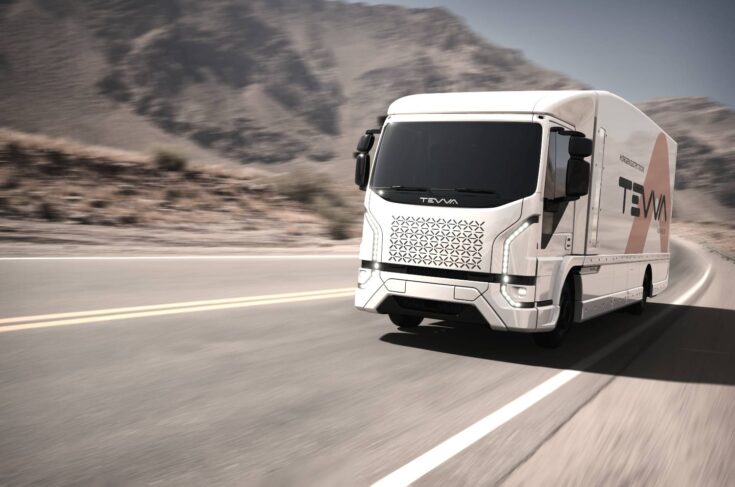The transportation industry is second only to the power sector as the world’s biggest emitters of CO2. In 2021, transport generated 7.6 gigatonnes of CO2 emissions globally. That’s enough to fill three million Olympic swimming pools. Clearly, if the world is to meet its net zero goals, transportation emissions have to be drastically reduced.
NextETRUCK is a project that aims to do just that. As part of the EU’s Horizon Innovation Actions programme, the project brings together universities, research technology organisations and manufacturers from several European countries, including Austria, Spain, Germany and the Netherlands. The UK is represented by electric-truck manufacturer Tevva and low-emission vehicle research consultancy CENEX.
Building a fleet of medium-duty electric vehicles
The project’s goal is to help decarbonise logistics by introducing fleets of medium-duty electric vehicles (EVs). These types of vehicles, which are used to haul medium loads of goods and materials, are responsible for 27% of the industry’s global emissions.
The consortium is working with a logistics operator in Utrecht, which will trial the project’s next-generation electric truck over a six-month period.
Tevva’s Programme Manager, Peter Scanes, explained:
Our role is to take all of the innovation that’s engineered in the project by the consortium, build at least one truck with those innovations, and put it on the road for the trial period.
Overseeing technological developments
As a manufacturer of electric vehicles, Tevva has a technological role in the project, too. It will:
- develop a next-generation electric truck capable of 200 kilometre range together with an intelligent thermal management system
- support the development of a digital twin of the vehicle and its operating ecosystem
Petrol and diesel vehicles use heat produced by their engines to warm the vehicle cabin. EVs have to use electric heaters to keep drivers and passengers comfortable. Heaters and air conditioning drain vehicle batteries, affecting a vehicle’s range, so Tevva’s task is to maintain comfortable temperatures as efficiently as possible so that trucks can go farther on a single charge.
Peter said:
In the automotive industry we’ve had to rely on building maybe hundreds of prototypes in a vehicle design programme. That takes time and it’s expensive. A digital twin of the vehicle and the environment it operates in enables you to rely less on physical prototypes, so you can bring products to market quicker and cheaper.
Developing a virtual model of the vehicle and its operating environment, using real-time data (such as route, pay load, topography, even weather conditions) will enable fleet organisations to predict the most efficient way to operate each vehicle during its daily mission and also plan the optimum time to charge vehicles as the fleet transitions away from diesel.
Straightforward access to guarantee funding
NextETRUCK is one of many Horizon Europe projects that the UK continues to participate in. During the delay to UK association to the EU funding programme, UK Research and Innovation is guaranteeing funding to UK researchers and innovators who apply successfully to Horizon Europe.
Peter said:
Accessing the guarantee funding was quite straightforward and we wouldn’t have any concerns about applying as part of a consortium in future. The hardest part was getting the project approved through the European Commission in the first place, because that’s a very competitive process.

